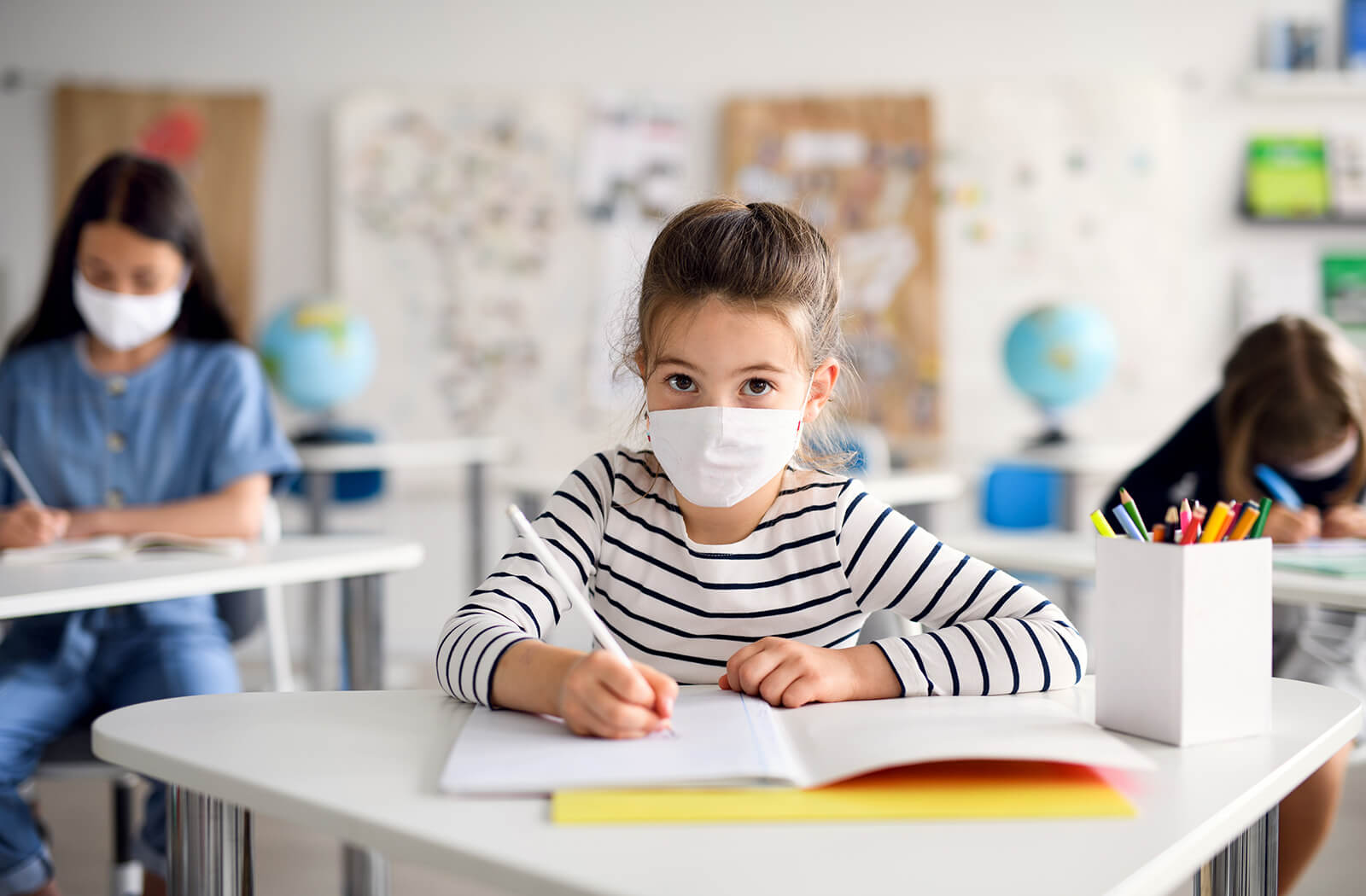
Psychiatrist Discusses Coronavirus and Mental Health Concerns as Kids Head Back-to-School

As children head back-to-school, whether in-person or online, health experts worry not only about children contracting COVID-19, but also about their mental health.

Parents are deciding whether to send their children back-to-school in-person. Will this impact their child’s development?
Honestly, it depends on your child. Although in the minority, there are some children who thrive in this new environment. If parents are available and have the resources to teach them at their own pace, kids may be learning more than they would have in traditional school. There may also be benefits for some kids with the removal of the social stressors associated with school. Unfortunately, this is not what we usually see. Often, parents are well-intentioned and trying their best, but lack the time, patience and experience to teach their kids. Kids are often left to try to navigate the day largely on their own, hampering their academic development. They also miss out on all the social development that occurs at school — learning how to make friends, handle disagreements, prioritize responsibilities and manage complex social interactions.
Should you talk to your child about the pandemic and what’s going on in the world right now?
Absolutely, yes. Bring it up. I think as parents, we often think that if our child isn’t bringing it up, then it must not be an issue. Kids notice everything and the major changes that accompanied COVID are impossible to miss. I would bring it up when kids are calm and in a familiar setting. For elementary school students, this may be bedtime. Something like "Hey, I know things look so different than any of us thought this year. What do you think about that?" is a good starter. For older kids, you could talk to them over a meal or sitting on the couch together. Let them know that you know it’s a different experience and ask directly if they have any questions or concerns. It doesn’t need to be a long conversation, but letting them know that you are here when they are ready and then periodically checking in is a good idea.
Will virtual learning and limited interaction with the outside world impact child development?
It is, and it will. It doesn’t mean that it always will have a negative impact. Again, a lot depends on your child, their supports and their resilience. Our kids are already living in a much different environment than we did. Much of their conversations already take place over text and social media. While this has changed some of the ways in which they interact, they may be better equipped to handle this kind of change. Little kids can learn a lot of their relevant social skills from social stories and interactions with family. Teenagers, whose developmental stage revolves around creating relationships outside of their immediate family and navigating social situations, may have more difficulty.
How can parents help their children cope with feelings of loss and/or depression from missed activities?
First, acknowledge it and validate how they feel. Empower them to come up with alternatives — not to replace, but to celebrate or connect in a different way. Being able to create ways for themselves and their peers to acknowledge these losses and create alternatives can be very rewarding and increase resilience.
What are the warning signs of a child struggling with mental health that a parent should look out for?
First, kids with underlying mental illness are at an increased risk for decompensation. If your child begins to isolate, have consistent difficulty with sleep, have intrusive thoughts/worries, becomes fearful of leaving the hose or being away from their caregivers, I would seek help from your pediatrician, family doctor or psychiatrist.
Virtual learning and limited interactions with the outside world can take a toll on mental health. What activities would help mitigate negative effects?
Spending time together is the most important. While it is great for you and your child’s mental health to exercise, meditate or spend time outdoors, any time you can spend together is positive. You can have movie nights, make a meal or play games. That being said, it is also important to remember to take care of ourselves as well. A little extra screen time may be unavoidable and as long as the content is appropriate, that’s okay too. We all need to decompress.
Is it safe to see your psychologist or psychiatrist right now?
It is safe. At Phoenix Children’s Hospital, we are wearing masks and goggles, taking daily temperatures, and we are monitoring any potential symptoms. As always, we are continuing hand hygiene and have increased cleanings. While it may be beneficial to have your initial evaluation in-person, especially if you think your child may have difficulty staying online for an hour intake, telehealth visits can also provide a thorough evaluation.
How do we raise children to handle unexpected situations like the pandemic and develop strong coping skills?
The best thing you can do for your children is be there for them. Children develop resilience as they encounter and overcome challenges and stress with the support of a trusted, stable and consistent adult. Model for them that this is difficult, but that you will all get through it together. Be there for them when they are disappointed or upset and support them as we all move forward.
Topics
About the College
Founded in 2007, the University of Arizona College of Medicine – Phoenix inspires and trains exemplary physicians, scientists and leaders to advance its core missions in education, research, clinical care and service to communities across Arizona. The college’s strength lies in our collaborations and partnerships with clinical affiliates, community organizations and industry sponsors. With our primary affiliate, Banner Health, we are recognized as the premier academic medical center in Phoenix. As an anchor institution of the Phoenix Bioscience Core, the college is home to signature research programs in neurosciences, cardiopulmonary diseases, immunology, informatics and metabolism. These focus areas uniquely position us to drive biomedical research and bolster economic development in the region.
As an urban institution with strong roots in rural and tribal health, the college has graduated more than 1,000 physicians and matriculates 130 students each year. Greater than 60% of matriculating students are from Arizona and many continue training at our GME sponsored residency programs, ultimately pursuing local academic and community-based opportunities. While our traditional four-year program continues to thrive, we will launch our recently approved accelerated three-year medical student curriculum with exclusive focus on primary care. This program is designed to further enhance workforce retention needs across Arizona.
The college has embarked on our strategic plan for 2025 to 2030. Learn more.